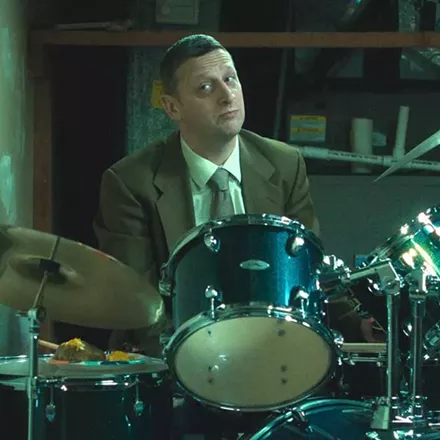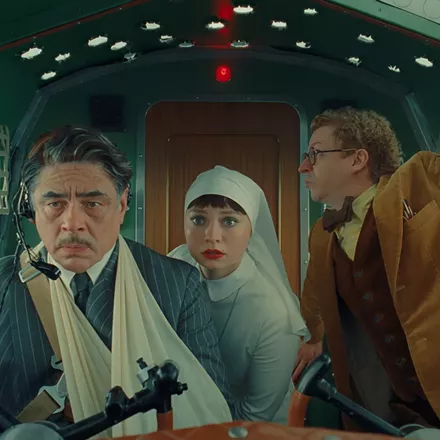What Women Want
Little Women and Hustlers tell the same story that is too rarely told.
By MaryAnn JohansonI am going to drop a truth bomb, and you are probably not ready for it: Little Women and Hustlers are the same movie.
"Wait a minute," you're saying. "That crime-caper black comedy about Great Recession strippers who con their clients is the same movie as the sweet, earnest oneabout 19th-century sisters figuring out who gets to marry Timothée Chalamet?"
First of all, that's not what Little Women is about—and that anyone might think so is part of the problem here. Second, yes, these two movies are so much the same thatit hurts me in all sorts of ways. Some good, some bad.
Sigmund Freud stroked his beard pensively when he wondered what women want, imagining that he was posing a conundrum for the ages. Hehad only to ask some women and really listen to what they said in response—but he doesn't seem to have ever considered that this was an option.If Freud didn't actually invent our culture's unwillingness to listen to and to understand women, he at least codified it.
We see that willful blindness at work on the big screen, even today, where movies by and about women are infinitely less likely to get produced than movies by andabout men. If such movies do manage to overcome the hurdle blocking their very existence, they are infinitely less likely to get wide releases. (I've studied this phenomenon on a week-by-week, here-are-the-new-releases basis. It's real, and it's infuriating.)
It's very much an anomaly, then, that Hustlers and Little Women—both written and directed by women (Lorene Scafaria forHustlers, Greta Gerwig for Little Women), both based on source material also written by women, and both profoundlyabout women—got such big releases within a few months of each other, and have been big hits.
It's no surprise that both films have resonated with audiences, because they plainly and overtly speak to women's lived lives that we hardly ever see play out in movies. Women like it when our realities are reflected in our entertainment. Men should like it, too, especially if they find themselves echoing Freud's needlessly cluelesspondering. Of course, there are as many answers to Freud's "dilemma" as there are women in the world, but there aresome basic ground truths—and these truths form the not-so-improbably similar backbones of Little Women and Hustlers:
• Women want to be respected for their brains and talents, not just for their bodies, and get far more satisfaction from the former.
• Women want financial independence, and particularly do not want to be financially reliant on men.
• Women want (and need, and cherish) the support of other women as they struggle to get by in a world that isn't kind to them.
• Women want autonomy in the world—not only to act with their own agency, but to be seen to be acting as their own agents.
It's pretty obvious stuff, or so you'd think. Yet our culture—in particular our pop culture—still too often casts women as nothing butadjuncts to men, unhappy unless romantically partnered with men. So it's beyond refreshing to see Little Women directly confronting the predicaments of theMarch sisters—most centrally, Saoirse Ronan's writer, Jo, and Florence Pugh's glamorpuss, Amy—as they try to make their ways in a world in which marriage is, for genteelly poor girls such as them, primarily a financial arrangement. They have few other options open to them to live comfortably, and blaze their own pathsthrough such a world. It's beyond refreshing to see the sex workers of Hustlers—most centrally, Constance Wu's newbie, Destiny, and Jennifer Lopez's veteran,Ramona—turning the tables on men who would take advantage of them, and who so utterly fail to recognize those women's agency that they cannot even see when they'rebeing played.
There's another thread of shared backbone that runs through Hustlers and Little Women that might be of particular appeal to women who long to see their storiestold, and who understand that women's perspectives on women's stories are absolutely vital: Women want control over their own stories, and they do not want to be told how to tell them.
It's nice that male filmmakers want to tell women's stories, but those men often have their own blind spots, failing to understand what it is about a woman's story thatmakes it worth telling. We see women controlling their own stories in Little Women, which plays a meta game with Jo's tale, suggesting that the happy ending (i.e.,marriage) that her male publisher demands of the novel's female protagonist might not be the same happy ending (i.e., maybe not married?) of Jo's ownlife. We see Destiny controlling the telling of her own story in Hustlers, when she cuts off the interrogation of Julia Stiles' journalist; the dialogue soundtrack goes shockingly silent then. The journalist might be a woman, but she's much more privileged than Destiny is—and so, you know, women of color need to be telling theirown stories, and get heard, far more often than their culture allows.
Yes, Little Women and Hustlers are the same movie—and I predict we will get many more like them until all women are authentically heard far more oftenthan we are now.
More by MaryAnn Johanson
-
Feature movie review: LEE
The life of groundbreaking war correspondent Lee Miller gets a fittingly monumental film tribute.
- Sep 25, 2024
- More »
Latest in Film Reviews
Readers also liked…
-
Sundance 2025 wrap-up plus February special screenings
Uncertainty about the future location shifts focus away from the movies
- Feb 5, 2025








